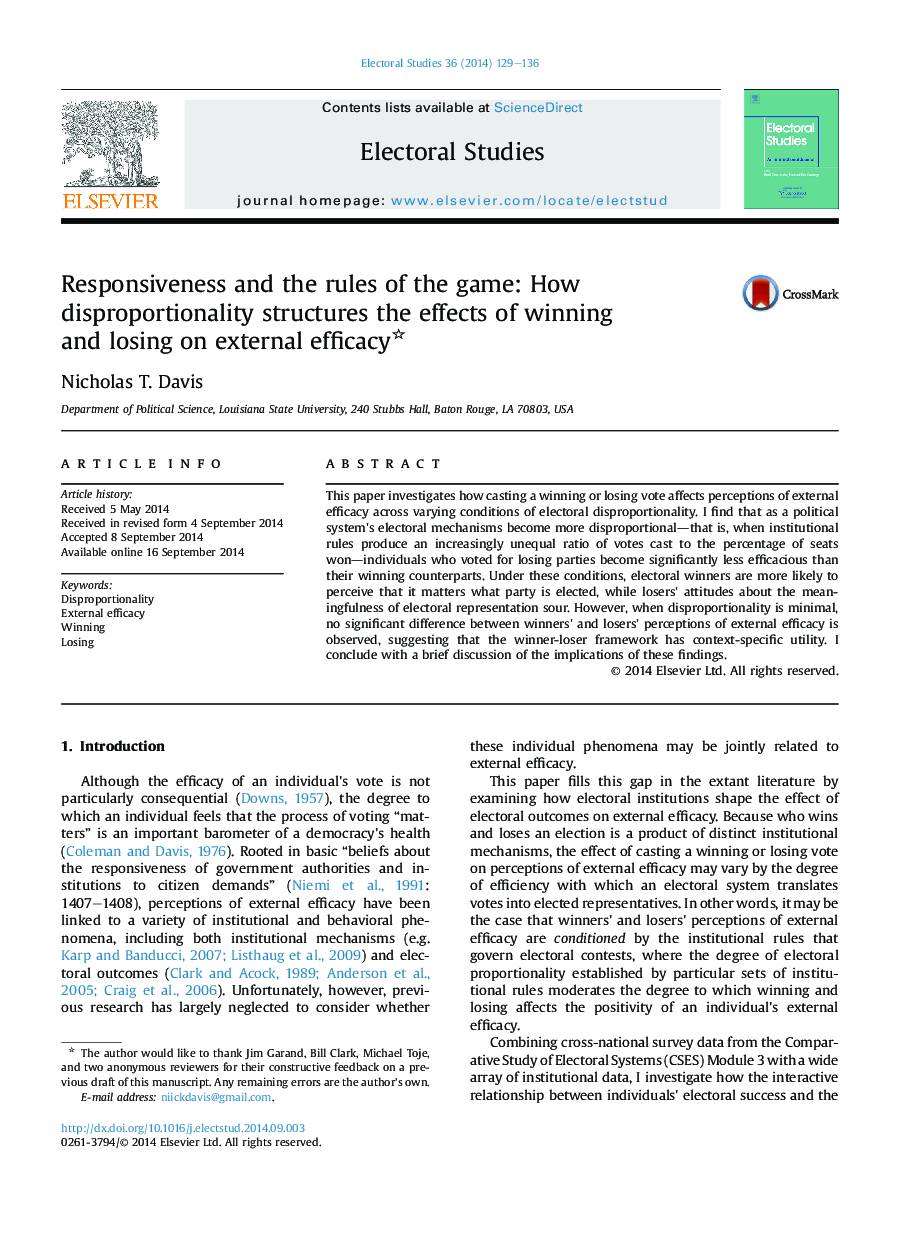| Article ID | Journal | Published Year | Pages | File Type |
|---|---|---|---|---|
| 7464254 | Electoral Studies | 2014 | 8 Pages |
Abstract
This paper investigates how casting a winning or losing vote affects perceptions of external efficacy across varying conditions of electoral disproportionality. I find that as a political system's electoral mechanisms become more disproportional-that is, when institutional rules produce an increasingly unequal ratio of votes cast to the percentage of seats won-individuals who voted for losing parties become significantly less efficacious than their winning counterparts. Under these conditions, electoral winners are more likely to perceive that it matters what party is elected, while losers' attitudes about the meaningfulness of electoral representation sour. However, when disproportionality is minimal, no significant difference between winners' and losers' perceptions of external efficacy is observed, suggesting that the winner-loser framework has context-specific utility. I conclude with a brief discussion of the implications of these findings.
Keywords
Related Topics
Social Sciences and Humanities
Social Sciences
Geography, Planning and Development
Authors
Nicholas T. Davis,
